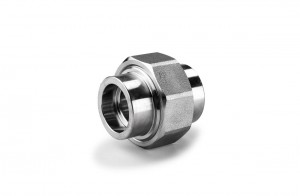High pressure valves are a type of valves that can withstand pressure and are used to transport liquids. There are many types of valves, including steel valves, copper valves, stainless steel valves, and others.
High pressure steel valves are mainly used to manufacture high-quality carbon structural steel, alloy structural steel, and stainless heat-resistant seamless steel valves for steam boiler pipelines under high pressure and above. These boiler valves can also undergo oxidation and corrosion when working at high temperature and high pressure, and under the action of high-temperature flue gas and water vapor. Therefore, steel valves are required to have high endurance strength, high oxidation resistance, and good organizational stability. The steel grades used include: high-quality carbon structural steel grades include 20G, 20MnG, and 25MnG. Alloy structural steel grades 15MoG, 20MoG, 12CrMoG, 15CrMoG, 12Cr2MoG, 12CrMoVG, 12Cr3MoVSiTiB, etc. Rusty and heat-resistant steel 1Cr18Ni9 and 1Cr18Ni11Nb high-pressure valves are commonly used.
In addition to ensuring chemical composition and mechanical properties, each pipe should undergo a water pressure test, including expansion and flattening tests. Steel valves are delivered in a heat treated state. In addition, there are certain requirements for the microstructure, grain size, and decarburization layer of finished steel valves. Seamless steel valves for geological drilling and petroleum drilling control. To explore the structure of underground rock layers, groundwater, oil, natural gas, and mineral resources, a drilling rig is used to drill wells. The extraction of oil and natural gas cannot be separated from drilling wells. Seamless steel valves used for geological drilling and control are the main equipment for drilling, mainly including outer core valves, inner core valves, casings, drill valves, etc. Due to the extremely complex working conditions of drilling valves that need to penetrate into several thousand meters of geological depth, the drill valves are subjected to stress effects such as tension, compression, bending, torsion, and uneven impact loads, as well as being subjected to mud and rock wear. Therefore, it is required that the valves must have sufficient strength, hardness, wear resistance, and impact toughness.

Steel valves are represented by "DZ" (the Chinese phonetic prefix for geology) and a number one to represent the yield point of the steel, Commonly used steel grades include 45MnB and 50Mn of DZ45. 40Mn2 and 40Mn2Si of DZ50. 40Mn2Mo and 40MnVB of DZ55. 40MnMoB for DZ60 and 27MnMoVB for DZ65. Steel valves are delivered in a heat treated state. Petroleum cracking pipe: Seamless pipe used for furnace valves, heat exchanger valves, and pipelines in petroleum refineries. Commonly used for manufacturing high-quality carbon steel (10, 20), alloy steel (12CrMo, 15CrMo), heat-resistant steel (12Cr2Mo, 15Cr5Mo), and stainless steel (1Cr18Ni9, 1Cr18Ni9Ti). In addition to obtaining certification of chemical composition and various mechanical properties, steel valves also need to undergo tests such as water pressure, flattening, and flaring, as well as surface quality and non-destructive testing.
Steel valves are delivered in a heat treated state. Stainless steel valves: Stainless steel valves that are hot-rolled or cold-rolled with various types of stainless steel are widely used in petroleum and chemical equipment pipelines, as well as stainless steel structural parts for various purposes. In addition to ensuring chemical composition and mechanical properties, all steel valves used to withstand fluid pressure should ensure that they pass the hydraulic test. Various specialized steel valves should be guaranteed according to the specified conditions.

Post time: May-16-2023
